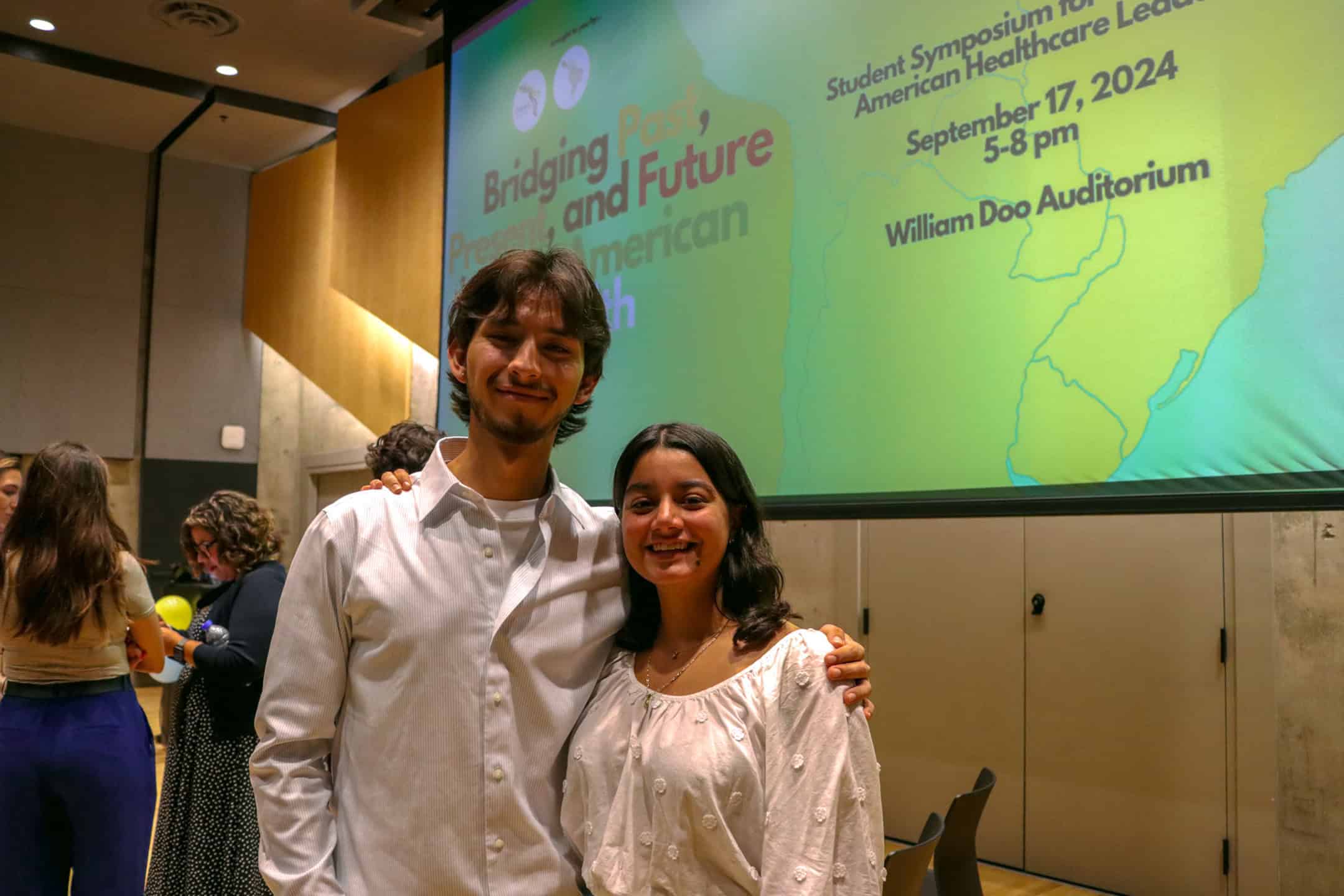On September 17, the Organization of Latin American Students (OLAS) and the Canadian Association of Latin Medical Students (CALMS) at U of T hosted two student-led panels spotlighting Latin American healthcare workers throughout the GTA. The second annual event took place from 5:00–8:00 pm at the William Doo Auditorium. OLAS aims to share Latin America’s diverse culture with the student body. CALMS U of T is the St. George chapter of an organization dedicated to addressing the under representation of Latin American medical students in Canada.
OLAS President Juan Diego Areiza and CALMS President Pablo Gonzalez founded the annual symposium titled “Bridging Past, Present, and Future in Latin American Healthcare.” Although Gonzalez was not part of this year’s initiative, two current U of T medical students and CALMS executive members — Nichole Sanchez Diaz and Ray Martinez-Rodriguez — stepped in to help organize and lead discussions as Temerty Faculty of Medicine representatives.
The organizers divided the panels into two sessions: the first focused on social determinants of Latin American health, while the second explored the need for cultural competence among healthcare workers, which is crucial for Latin American patients. For Latin American patients, in particular, immigration status and language barriers are prevalent challenges to receiving effective treatments.
Social determinants refer to aspects of the social and physical environment that impact health, such as education, food security, housing, and medical accessibility. Cultural competence concerns a set of values and behaviours that inform effective and respectful cross-cultural communication.
Panel speakers included GTA-based prominent community workers, researchers, and physicians. The event emphasized that health inequity plagues every country, including Latin American countries, and is not limited to developing nations.
Key points from the panel
Dr. María Luisa (Malú) Romero, the ONCARE Cancer Center medical director of clinical research, highlighted the systematic barriers and hesitance among patients without immigration status. Out of fear of being flagged or even deported, these patients may second guess the necessity of booking medical appointments or sharing confidential information with doctors.
Dr. Romero also discussed her experience creating the Latin American COVID Task Force, a team dedicated to administering vaccines and providing COVID-19 care in Spanish. The organization focused on building trust and making health information accessible to Hispanic communities because “even if you don’t have migratory status, you still are human. You [shouldn’t] need an OHIP number to receive a vaccine.”
Panelist and U of T PhD candidate Marianne Lahaie Luna emphasized social determinants of health and the potential of community representation to break cycles of inequality. She cited a grim statistic: Latin American boys have the lowest rates of on-time high school graduation in Ontario, attributing this to a lack of representation.
Luna also mentioned that without prominent role models, students may lose motivation to pursue higher education. “As we all know, level of education is correlated with health outcomes… [as it] leads to higher socioeconomic status.” She praised the efforts of both student groups for inspiring the next generation of Latin American healthcare leaders by hosting this event.
OLAS community building and future endeavours
The symposium ran smoothly. Dinner included Latin American favourites such as tacos and empanadas, and the event concluded with a friendly networking session toward the end, where I had the chance to speak with OLAS Vice-President Maria Andrea Morelos Andrade. Instantly warm and welcoming, she asked me about my favourite parts of the evening, and we soon began chatting about the inspiring speakers.
When asked what prompted the organization of this initiative, Morelos highlighted the need for Latin American experiences and perspectives in the healthcare industry to be shared and showcased by Latin Americans, for Latin Americans. The symposium’s goal was to create a space for Latin American students — any students of Latin American origin or descent — to come together and learn from health professionals who share their identity, allowing them to find role models in a field predominantly centred around English-speaking healthcare professionals.
I also asked about future initiatives that students can expect from OLAS. Morelos shared that Latin American Heritage Month — which is every October — is just around the corner, and the team is planning a festival to celebrate the diverse identities within Latin American cultures across the continent.
Many non-Latin American people tend to assume cultural homogeneity within and around South America, so Morelos stressed that it’s important for the organization to accurately represent the variety of languages, celebrations, and cuisines that the region has to offer. After all, practicing cultural competence in healthcare starts with acknowledging diverse identities and needs.



No comments to display.